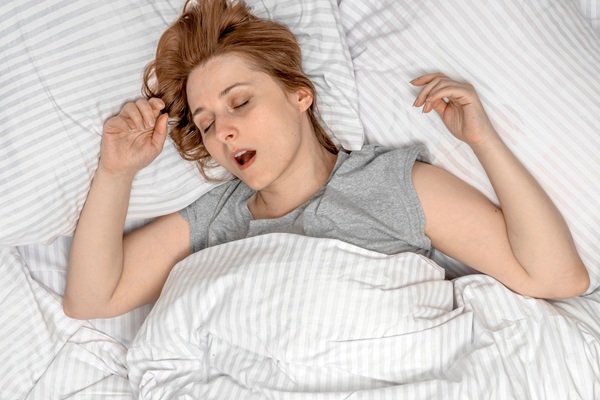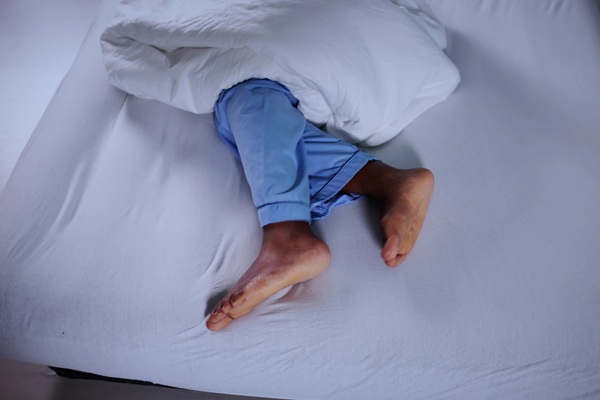Tips for Living With Sleep Apnea

Sleep apnea can impact nearly every aspect of life, from mood and focus to physical well-being and mental health. Fortunately, support from a psychiatrist can be helpful in managing the cognitive, emotional, and behavioral challenges associated with sleep apnea. With the right care strategies, it is entirely possible to live (and sleep) well with this condition.
The effects of sleep apnea
Sleep apnea occurs when the airway becomes partially or fully blocked during sleep, causing breathing to pause repeatedly throughout the night. For most patients, this leads to loud snoring, gasping for air, and poor-quality sleep. These interruptions prevent the body from entering deep, restorative stages of rest known as rapid eye movement (REM) sleep. Even if the patient does not fully wake up, a lack of REM sleep can negatively impact memory, emotional regulation, and physical health over time.
That said, patients do not need to wait for the long-term effects of sleep apnea and sleep deprivation to set in before getting help. Immediate symptoms like daytime sleepiness, irritability, memory problems, and difficulty concentrating are more than enough reasons to seek sleep apnea treatment. A psychiatrist can help patients understand the condition's full impact on their lives and manage its symptoms.
A psychiatrist’s tips for living with sleep apnea
Managing sleep apnea involves more than just using a continuous positive airway pressure (CPAP) machine or making physical health changes. A psychiatrist can offer valuable tools to support behavioral adjustments, improve emotional regulation, and reduce the psychological toll of chronic sleep disruption. To start, here are three tips a psychiatrist typically recommends for living with sleep apnea:
Practice better sleep hygiene
Practicing better sleep hygiene can be as simple as limiting screen time in the evening and creating a calming environment that supports relaxation. Additionally, reading, listening to soothing music, or practicing relaxation techniques can reduce mental stimulation and make it easier to fall asleep. When paired with psychiatric care and a physician’s treatment plan for sleep apnea, better sleep hygiene can support deeper, more restful sleep.
Consider prescription medication
Prescription medications can often be helpful in managing the symptoms of sleep apnea. While medication does not treat airway obstruction directly, it can address related issues such as anxiety, depression, or excessive daytime sleepiness.
A psychiatrist may recommend medication to stabilize mood, reduce intrusive thoughts, or assist with falling asleep and staying asleep. In patients who struggle with CPAP compliance due to anxiety or claustrophobia, short-term pharmaceutical support can make the transition easier. Keep in mind that medication is merely part of a broader treatment plan and is monitored closely to avoid side effects or interactions with other approaches.
Address underlying mental health issues
Sleep apnea often coexists with mental health conditions such as anxiety, depression, or trauma-related disorders, which can worsen symptoms by increasing nighttime restlessness and contributing to insomnia. Poor sleep, in turn, may intensify emotional instability and lower resilience to daily stress. A psychiatrist can evaluate these underlying issues and create a treatment plan that may include prescription medication, talk therapy, behavioral interventions, or support groups. Treating mental health symptoms also enhances the effectiveness of physical treatments like CPAP therapy or oral appliances.
Get more tips in an appointment
Sleep apnea is a manageable condition when treated by the right care team. Working in conjunction with other medical specialists, a psychiatrist can help patients build sustainable habits, manage coexisting mental health concerns, and reduce the emotional burden of living with chronic sleep disruption. Contact Hope TMS and Neuropsychiatric Center for personalized strategies and ongoing support in improving sleep quality.
Request an appointment here: https://www.hopetmsofny.com or call Hope TMS and Neuropsychiatric Center at (646) 578-8152 for an appointment in our New York office.
Check out what others are saying about our services on Yelp: Sleep Apnea in New York, NY.
Recent Posts
Restless leg syndrome can make evenings difficult by creating an urgent need to move the legs when the body tries to rest. Considering symptoms like crawling or pulling often intensify at night, sleep quality can drop, and daytime energy can follow. With the right support, many people can manage their symptoms and get a good…
PTSD syndrome can shape your daily experiences in significant ways, from your emotional balance to your physical health and personal stability. Symptoms of PTSD can become an invisible burden that affects your routine and interpersonal connections. While these symptoms vary from person to person, they can impact every corner of your life without the right…
Adult ADHD therapy supports individuals navigating challenges with focus, time management, and emotional regulation. While attention deficit hyperactivity disorder, or ADHD, is commonly diagnosed in childhood, its symptoms can persist into adulthood, often interfering with careers, relationships, and daily tasks. Professional therapy offers a structured approach to managing these difficulties and building long-term strategies for…
Transcranial magnetic stimulation, also known as TMS treatment, is an innovative and noninvasive therapy for several mental health conditions. By using magnetic fields to stimulate specific areas of the brain, TMS is an effective treatment for cases where traditional methods have provided little to no relief. It is important to know which mental disorders are…


